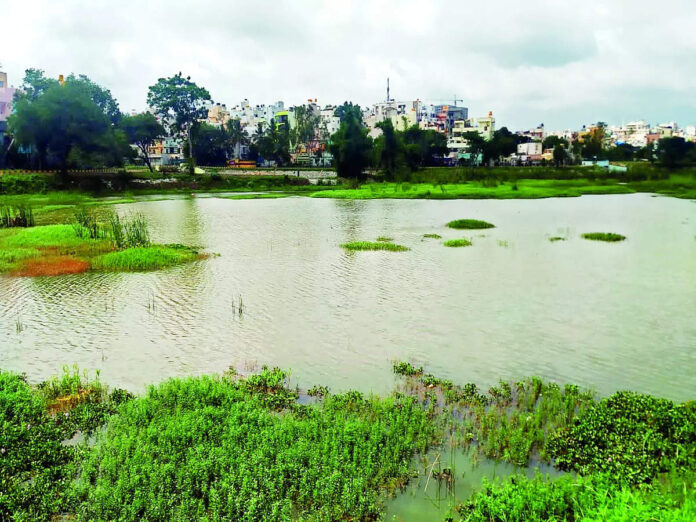According to the water quality analysis report by the Karnataka State Pollution Control Board (KSPCB), not a single lake in Bengaluru is suitable for use as a source of drinking water, and the discharge of untreated sewage and industrial effluents into them continues to be the main causes of the contamination of these water bodies.
According to the KSPCB assessment, water with a Class A rating is suitable for drinking without conventional treatment, while a Class B rating is appropriate for outdoor bathing. While water from lakes classified as Class D could be used to support fisheries and animals, Class E is suitable for irrigation.
Out of the 105 lakes in Bengaluru, none of them are classified as Class A, B, or C, 65 of them are Class D, and 36 lakes are classified as Class E, according to the KSPCB study. Since the other four lakes’ water bodies were dry, it was not possible to take water samples from them.
Government figures show that Bengaluru produces 1458.6 mld of sewage daily.
“Out of 1,456 mld of sewage which is being generated daily in Bengaluru, only 50 percent of it is being treated in the sewage treatment plants. So, the major reason behind the pollution of the lakes, I would say is 80 percent sewage and 20 percent industrial effluents,” said a senior official from the KSPCB on the condition of anonymity.
“In over 110 villages, the Bangalore Water Supply and Sewerage Board (BWSSB) is yet to provide the underground drainage lines (UGD) and the sewage generated in these villages enters the lakes. We monitor the lakes and publish the water quality index data for the agencies to contain the pollution but nothing concrete is seen on the ground,” added the official.
According to the Bengaluru Urban District Environment Plan, which was posted on the Karnataka government website on August 31, urban local bodies must make sure that wastewater-carrying drains do not merge with water bodies. These actions must be performed by March 31 of 2023.
“As per Department of Urban Development Corporation Bommasandra lake, Chandapura lake, Hebbagodi lake, Jigani lake and Madanayakanahalli lake, Hennagara lake, Zuzu lake, Bidaruguppe lake, Kammasandra lake are receiving the sewage of the nearby areas,” according to the environment plan report.
Additionally, it cited information from the Minor Irrigation department claiming that sewage is partially polluting several lakes, including Bandekodigehalli Lake, Doddajala Lake, Singanayakanahalli Lake, Halur Lake, Sonde Koppa Lake, Kodathi Lake, Chikkanahalli Lake, Doddagubbi Kere, Anekal Lake, Jigani Lake, Sakalavara Bujangada.
“As per the details of Minor Irrigation department, Rampura Lake, Yallamallappa Shetty Lake, Vaderahalli Lake, Hoodi Palya Lake, Bommasandra Lake, and Addevishvanathapura Lake are completely polluted because sewage enters into the lakes,” it added.
Source: Indian Express



